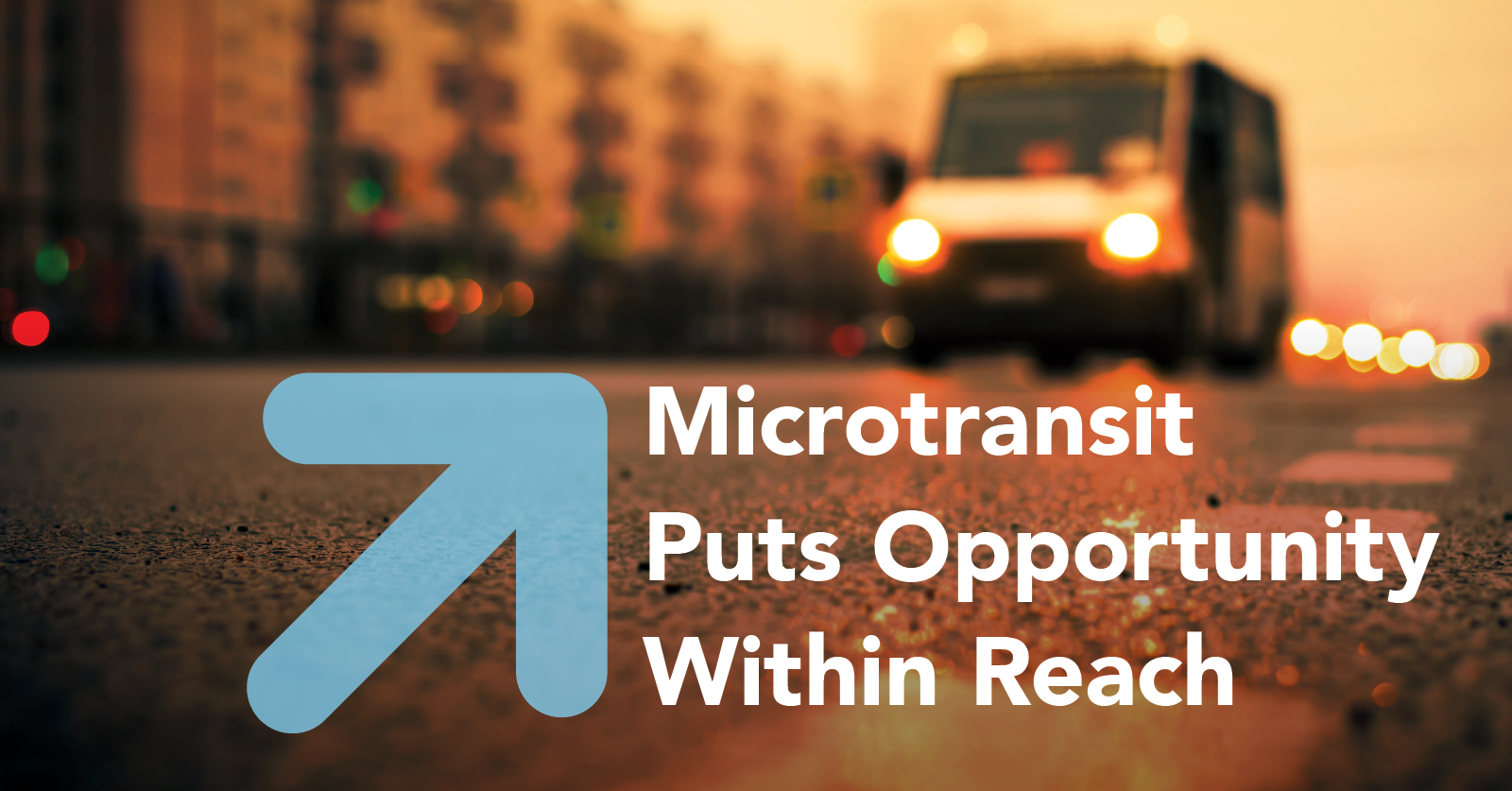
This is probably one of the most exciting things that’s happened in public transit in my lifetime. We’re creating the future.” – Mayor Jeffry Wosje, Plymouth, Minnesota.
Midsize metropolitan areas are growing, and traditional transit is struggling to serve those rapidly growing populations and shifting demographics. In rural areas, fixed-route buses are often limited or non-existent, impeding access to opportunities such as better employment, healthcare, and education for residents of those communities. These challenges are forcing city and transit officials to rethink their transit strategy.
Microtransit is filling that gap by reducing barriers to access and energizing communities. Easy to deploy and more affordable than traditional ride-sharing, microtransit offers first-mile/last-mile service to rural residents, making car-optional cities a reality for both urban and rural communities.
City and transit leaders have touted microtransit as an instrument for economic development and vitality. By partnering with transit agencies across the nation, TransLoc is committed to helping municipalities better serve their communities by tackling existing transportation problems and embracing a mobility mindset.
“Transit can build new public and private partnerships to foster more jobs and business opportunities. Transit can reignite historic industries and neighborhoods with new energy and shared ideas. Transit can connect diverse people, communities, and organizations together so everyone can access the city’s future and no one is left behind.”
Transit and community leaders Jessica Mefford-Miller, Executive Director of Metro Transit in St. Louis; Brandon Policicchio, Chief Customer and Business Development Officer at Greater Dayton Regional Transit Authority in Ohio; and Jeffrey Wosje, Mayor of Plymouth, Minnesota, discuss how microtransit is leveling the playing field and vitalizing communities.
To learn how microtransit is vitalizing communities, download our white paper today!